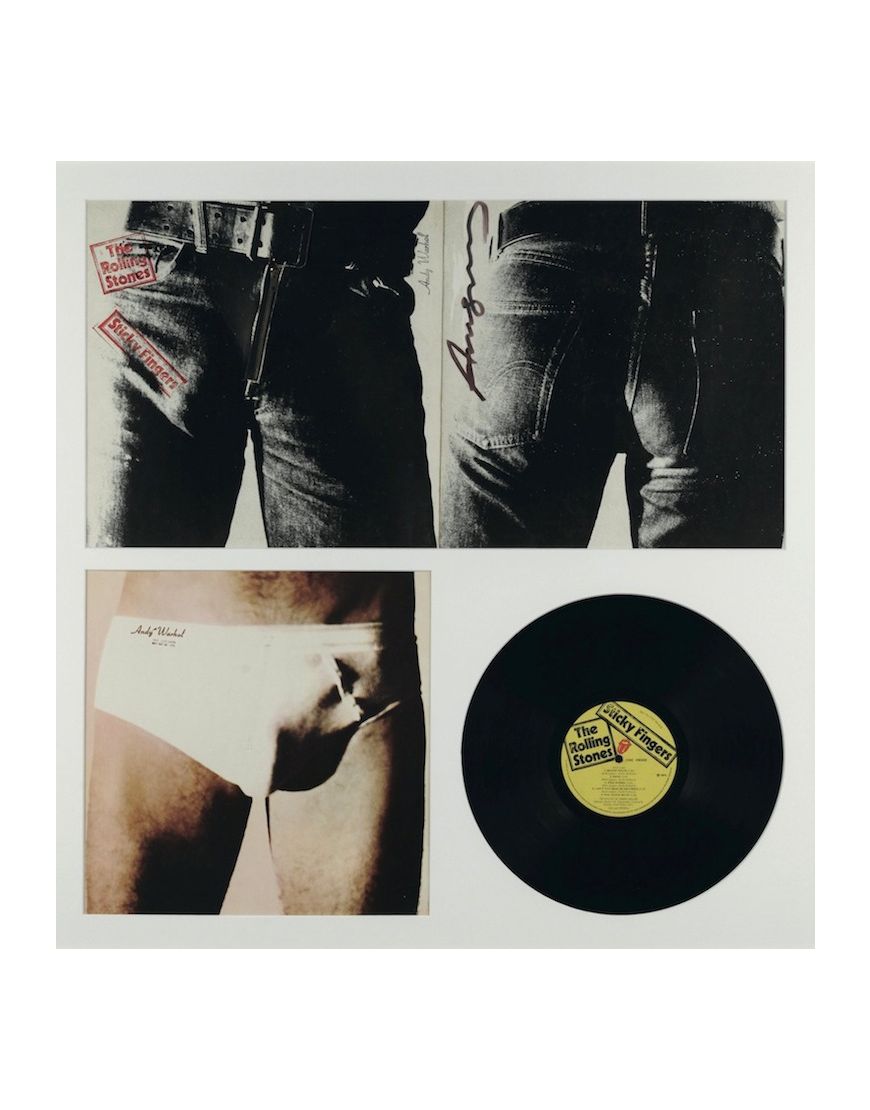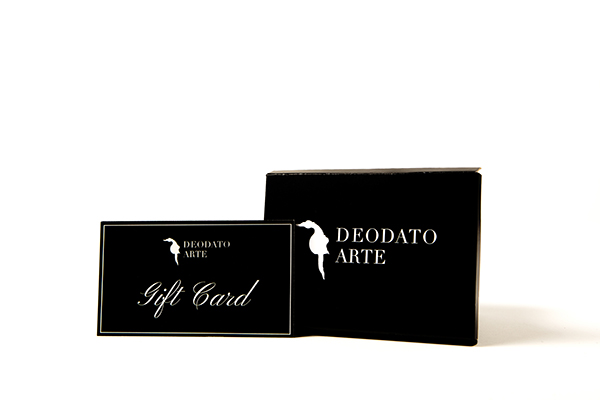- Home
- Artists
- Alex Katz
- Andy Warhol
- Angelo Accardi
- Arman
- Arnaud Nazare-Aga
- Banksy
- Bearbrick
- Bernard Aubertin
- Christo
- Damien Hirst
- Daniele Fortuna
- David Kracov
- David LaChapelle
- Dorit Levinstein
- Felipe Cardena
- Georges Braque
- Giosetta Fioroni
- Helmut Newton
- Henri Matisse
- iClim
- Invader
- James Rosenquist
- Jean-Michel Basquiat
- Jeff Koons
- Joan Miró
- José Molina
- Kaws
- Keith Haring
- Kenny Scharf
- Liu Bolin
- Lucio Fontana
- Marc Chagall
- Marco Glaviano
- Marco Lodola
- Mark Kostabi
- Maxime Siau
- Miaz Brothers
- Mimmo Rotella
- Mr. Brainwash
- Mr. Savethewall
- Obey
- Orticanoodles
- Pablo Picasso
- Richard Orlinski
- Riva Boutique
- Robert Indiana
- Roy Lichtenstein
- Romero Britto
- Salvador Dalì
- Stik
- Takashi Murakami
- Tomoko Nagao
- Tvboy
- Yayoi Kusama
- ...other artists
- Athos Faccincani
- Carlo Massimo Franchi
- Davide Nido
- Franco Costalonga
- Francesco Musante
- Giampaolo Talani
- Giovanna Fra
- Giuliano Grittini
- Giuseppe Chiari
- Hiroyuki Takahashi
- Hitomi Maehashi
- Lido Bettarini
- Manolo Valdés
- Manuela Manes
- Matteo Guarnaccia
- Maurizio Galimberti
- Mimmo Paladino
- Salvatore Emblema
- Sam Francis
- Ugo Nespolo
- Xiaogang Zhang
- Gift Shop
- META VR
- BLOG
- ABOUT
- BUSINESS B2B
- Artists
- Alex Katz
- Andy Warhol
- Angelo Accardi
- Arman
- Arnaud Nazare-Aga
- Banksy
- Bearbrick
- Bernard Aubertin
- Christo
- Damien Hirst
- Daniele Fortuna
- David Kracov
- David LaChapelle
- Dorit Levinstein
- Felipe Cardena
- Georges Braque
- Giosetta Fioroni
- Helmut Newton
- Henri Matisse
- iClim
- Invader
- James Rosenquist
- Jean-Michel Basquiat
- Jeff Koons
- Joan Miró
- José Molina
- Kaws
- Keith Haring
- Kenny Scharf
- Liu Bolin
- Lucio Fontana
- Marc Chagall
- Marco Glaviano
- Marco Lodola
- Mark Kostabi
- Maxime Siau
- Miaz Brothers
- Mimmo Rotella
- Mr. Brainwash
- Mr. Savethewall
- Obey
- Orticanoodles
- Pablo Picasso
- Richard Orlinski
- Riva Boutique
- Robert Indiana
- Roy Lichtenstein
- Romero Britto
- Salvador Dalì
- Stik
- Takashi Murakami
- Tomoko Nagao
- Tvboy
- Yayoi Kusama
- ...other artists
- Athos Faccincani
- Carlo Massimo Franchi
- Davide Nido
- Franco Costalonga
- Francesco Musante
- Giampaolo Talani
- Giovanna Fra
- Giuliano Grittini
- Giuseppe Chiari
- Hiroyuki Takahashi
- Hitomi Maehashi
- Lido Bettarini
- Manolo Valdés
- Manuela Manes
- Matteo Guarnaccia
- Maurizio Galimberti
- Mimmo Paladino
- Salvatore Emblema
- Sam Francis
- Ugo Nespolo
- Xiaogang Zhang
- Gift Shop
Register
Wishlist
Contact Us
- META VR
- BLOG
- ABOUT
- BUSINESS B2B


Thank you!

ORARI DI APERTURA
|MAPPA
- Home
- Artists
- Andy Warhol
- Signed
- Sticky Fingers/Rolling Stones

Sticky Fingers/Rolling Stones
| Artist: Andy Warhol | Width: 31,4 cm |
| Support: Paper | Height: 31,1 cm |
VAT included
Products with VAT included show a price calculated with VAT tax, so the additional tax of 22% is already added to the price of these products.
VAT Margin
The products with VAT Margin apply the additional tax of 22% only on the margin, the difference between the price at which the product is purchased and the price at which the same product is resold.
THE ARTWORK
Andy Warhol - Sticky Fingers/Rolling Stones
Sticky Fingers/Rolling Stones is an album cover made by artist Andy Warhol in 1971.
Andy Warhol realized several album covers as part of his artistic career. In 1971, 'Sticky Fingers', the Rolling Stones' eleventh album, was released and immediately climbed the charts. The band's aggressive, rock and roll music was accompanied by a provocative cover artwork by Andy Warhol, which was even censored by some states as being too scandalous.
Warhol and Jagger, frontman of The Rolling Stones, collaborated often during both their careers. If Mick Jagger posed for Warhol and became the subject of his silkscreen prints, Warhol designed covers for him such as 'Love you live' and the 'Sticky Fingers' cover. Warhol's was always an art of challenge, and this cover clearly demonstrates this. Learn more about the collaboration between Andy Warhol and Mick Jagger.
The Sticky Fingers/Rolling Stones cover is hand-signed and measures 31,1x31,4 cm.
Andy Warhol, Sticky Fingers/Rolling Stones: Prices and Value
If you are interested in the work by Andy Warhol, Sticky Fingers/Rolling Stones and you wish to know the price click on "SHOW PRICE" to shortly receive it by email.
Do not hesitate to contact us for more information about the artist and his works on sale.
Join the wonders of art thanks to the wide selection of works available on our website.
ADDITIONAL INFORMATION
Andy Warhol - Sticky Fingers/Rolling Stones - 1971 - Hand-signed
| SKU | WARA-300622-05 |
| Technique | Mixed |
| Edition | Cover Album |
| Support | Paper |
| Width | 31,4 cm |
| Height | 31,1 cm |
| Year | 1971 |
| Notes | Hand-signed |
ARTIST: ANDY WARHOL
Andy Warhol: Pop Artist
Andrew Warhola, mostly know as Andy Warhol, pop artist, was a painter, sculptor, director and actor.
When Was Andy Warhol Born?
He was born in Pittsburgh the 6 th of August 1928.
When Did Andy Warhol Die?
The artist will spend his entire life in New York, where he will suddenly die on the 22 nd of February, 1987, at the age of 58.
Andy Warhol: Facts
Since the beginning, the artist had shown his enormous talent for art and, therefore, decided to study graphic art and advertisement at the Carnegie Institute of Technology in Pittsburgh.
Right after the degree at the Institute of Technology, he moved to New York, where he started to work in the advertising field for important fashion magazines.
After Andy Warhol death, many of the objects belonged to him has been sold at auction, and the income has been used to finance the Andy Warhol Foundation for Visual Arts.
The Foundation, wanted by the artist himself, has always have as main goal that of support and encourage contemporary artistic production, and it is still fully active nowadays.
Moreover, after his death, Andy Warhol’s quotations on the market have been rising vertiginously, making him the most sold artist in the world after Pablo Picasso.
Up until today, Andy Warhol is probably the artist of the XXth century that more has influenced contemporary art and culture.
His background as publicist and advertiser led him to the winning artistic intuition.
One of most important facts about Andy Warhol is that thanks to this job, he had the opportunity to learn photography, medium that will be at the centre of Warhol’s art, but most of all, it allowed him to get closer to the American mass culture of the 1960s: another fundamental concept that will be developed through Andy Warhol art.
Rise of American Pop Art: Andy Warhol Art uses Subjects of the Mass Culture
The second post-war period was full of important artistic experimentations which carried on what had been studied and done by the Artistic Avantgardes of the first half of the 1900.
For this very reason, the new artistic tendencies, born between the end of 1950s and the beginning of the ‘60s, retrieved important themes already developed by the first avantgardes, such as emotional detachment, depersonalisation of the work of art and the loss of subjectivity of the artist.
These themes reached maximum expression with the American Pop Art of the 1960s.
It was a fundamental period for the United States: those were, in fact, the years of the American economic boom, which, together with the fast development of technology, led to the rise of mass culture based on an unrestrained consumerism, the overflow of mass media and the affirmation of Hollywood cinema and its icons.
These tendencies influenced not only the concept of art, but also the way of making it.
The artists soon recognized the critic conditions that were leading American society: the uncontrolled influence of mass media was making the human being more and more alienated and blinded by the fake perfection proposed by the movies and other communication tools, making people unable to distinguish the real life from the fake one, and selling consumerism as the only option for an acceptable lifestyle.
The artistic intuition of the pop art artists arose because of the reflections on this themes and situations.
Since mass media had become the only way of communication, and consumerism products were continuously trivialised by the constant production in series, pop artists realized that it was useless to create and propose a type of art with different subjects from the ones delivered by the mass media.
Pop art is based on retracing this very concept. As a matter of fact, what inspired Andy Warhol were the same products proposed by the media over and over again: Coca cola, Dollar bills, Campbell Soup, Brillo boxes.
They were products that could be found in any supermarket and considered as consumer goods.
Warhol’s decision of repeatedly reproducing the images of these products in his artworks was, really, a critique: in this way they imitated not only the serial production of the goods, but, above all, the morbid and mechanical reiteration of these products on and through advertisement.
The same concepted was applied for Hollywood icons: in the same way of consumer goods, their faces were endlessly repeated in the artist’s artworks.
Emblematic example is Andy Warhol Marilyn Monroe, labelled as the main symbol of American mass culture. “Don’t think about making art, just do it. Let the others decide if it’s good or bad, if they like it or not. In the meantime, while the others are deciding, you do more art.” Andy Warhol
It is thanks to this thought if we are still celebrating the founding father of Pop Art.
Andy Warhol let others decide what was art and what was not; he just created and gave birth to all those images that, really, were already existing and impressed in his mind.
This is the reason why we are still celebrating Warhol as an artist, because his pop art artworks still have a meaning to us; his idea of multiple and repetition as representation of the human being as stereotype is still very real nowadays, and it is why we still find his work close to us and accessible.
First and most indicative example can be the MYTHS portfolio, some of his most famous artworks and series that celebrates characters of American pop and cinematic culture, which had become real icons: Dracula, Santa Claus, Superman, Uncle Sam and many others; all of them known and loved by the public whom identified itself in them.
It is important to say, though, that the goal of the American Pop Art was not that of following trends.
On the contrary, the aim was the opposite: to use not just the images, but also the tone and the language of mass media, so to be sure to spread a clear message, intelligible to all, of critique towards the alienated and depersonalized American mass culture and society of those years.
Pop Art Andy Warhol : The Distruction of the Halo
Andy Warhol artworks gave birth to the iconic Marilyns, to the concept of reproduction as practice of emptying of meaning, as with Coca Cola or the Dollar bills reproduced in series, and, thanks to the famous Campbell Soup, to the destruction of the halo of the work of art, already started by the Dadaists and, even before, by the rise of photography.
By halo is meant that traditional characteristic of the work of art intended as something that can be enjoyed only in one place and in one time because unique in the world.
With the Avantgardes of the XXth century and the advent of photography, the traditional concept of halo is destroyed: thanks to the new technologies, every work of art can be reproduced infinite times, and anyone can enjoy it everywhere, anytime.
If, at the beginning, art and the concept of art is changed by the possibilities brought by photography and new technology, it is only with the time that artists learnt to properly use and develop new techniques.
The American Pop Art is a clear example of this new way of creating art, most of all Andy Warhol’s pop art.
The Campbell’s Soup artworks are the proof of how effective can be the technique of reproducing the same object several time, in order to send a strong and provocative message about the mass culture and consumerism and, at the same time, to elevate a common object to work of art.
Moreover, thanks to the reproduction process, many people can enjoy Andy Warhol artworks, becoming main characters of the rise of American Pop Art, rather than just spectators.
King of pop art, Andy Warhol has been a visionary, ahead of his times, which is why he is consider as the forerunner of many other contemporary art movements, which look back at him for inspiration.
Certainly, Andy Warhol art and its themes are still very actual, demonstrating that, in order to be contemporary, an artist does not necessarily need to be still alive.
Warhol and the Music World
Because of his illustrators jobs for record labels and luxury brands, Warhol created the covers of many records and magazines which remained, and will remain, stuck in the collective imagination of great part of the global population.
Moreover, with the cover of the album of the Velvet Underground Andy Warhol went a step further:
If the cover had been designed by “Warhol illustrator”, the signature he put on it took the cover itself to another level, transforming it in a work of art.
With pop art, the signature acquires an important meaning; if, before, the work of art could be considered as such just for its own properties, now the signature of the artist makes the difference.
Many others magazines, cards, postcards, albums, dollars bills have acquired importance just because signed by the artist himself, transforming them from daily objects into works of art.
Andy Warhol: Most Famous Work
Andy Warhol's Artworks wanted to reach as many people as possible, therefore decided to choose subjects and themes that could be understood and recognized by the majority of the audience.
For example, with his numerous portraits of Marylin Monroe Andy Warhol reached the peak of his artistic production. Others of Andy Warhol Most Famous Works are Campbell'S Soup, Flowers and Mao.
Priceless Value: Andy Warhol Signature
As already stated, Andy Warhol signature used to have -and still does- an immense value.
On certain occasions, like the vernissages of his exhibitions, Warhol used to give away smaller copies of his most famous artworks, which he hand signed personally.
Today these reproductions have become real pop art artworks of great value just because of his signature on them.
Some examples can be the Andy Warhol Ladies and gentlemen for sale with signature.
On Collection of Deodato Art Galleries you can find Unique Pieces with Authentic Andy Warhol Signature. All Andy Warhol Artworks for Sale Signed include a genuine Certificate of Authenticity (COA).
Andy Warhol: Marilyn Monroe
In Marilyn Monroe the artist found the perfect subject for his art. Speaking mostly about screen printing Andy Warhol chose the most famous image of the sex symbol.
Also, this choice was not casual: Warhol decided to represent the actress not as a person but as icon.
In those years, Marilyn was a famous American actress, at the peak of her career and embodiment of ideal beauty and ideal lifestyle promoted by the mass media.
As a matter of fact, with Marilyn Monroe Andy Warhol represents a symbol of the American culture and of that kind of perfect life that every American wanted to achieve.
With screen printing technique, Warhol adds flashy colours, reduces the details and flattens the image, in order to lower the emotional impact of this particular subject, which still represent a famous woman.
Peculiarity of Andy Warhol Marilyn Monroe prints is the minimization of the details, with the aim to avoid any particular that could distract the viewer from the main subject.
Another important characteristic is the two-dimensional representation, apt to focus the spectator on the “icon” rather than on the person.
The work representing Marilyn Monroe was realized after her sudden death. In this way, the artist sanctified the actress as Icon of the masses, like any other consumer good.
In order to do so, Warhol relied on the screen print technique, reproducing the face of the actress many times in different colours.
As a matter of fact, this printing technique allows to easily change the colours applied to the same subject, making therefore even easier to reproduce them in series.
This is how the work “Four Marilyn” was created: all identical but in different colours. Also in this case, Warhol relied on the reproduction in series and the concept of repetition.
Andy Warhol: Campbell Soup Cans
Another Andy Warhl most famous work is that representing the Campbell Soup Cans, a product that was common and known by everyone.
With Campbell's Soup Andy Warhol become one of the most famous and expensive pop artist of the United States.
As already done by Claes Oldenburg, the American Pop Artist takes common and daily objects and represents them on big scale.
The bigger dimensions have the aim to give an alienating effect to the object, in order to move the spectator to recognize and reflect on the obsessive relationship with the object in question.
32 Campbell’s Soup Cans is made by 32 cans of soup, slightly different from each other for the ingredients, posed next to each other as they are on the shelves of the supermarkets.
As with his other subjects, in the Campbell Soup Andy Warhol has found the perfect image to describe the consumerism that was afflicting the American society of the 1960s, which he wanted to criticize with his pop art artworks.
Like the Marilyns, these works present a clear simplification of the details; in fact, the bi-dimensional cans are added on a simple white background which highlights the cans themselves.
The 32 Campbell Soup Cans represent the first moment of notoriety of the artist, followed by Andy Warhol first exhibition in a New York Gallery.
The screen print representing the 32 cans -on which the artist intervened later with paint additions- was also published on the Times.
After the first personal exhibition, some critics defined Andy Warhol artworks provocative, but also banal and “flat”; although negative, these words perfectly summarized the pillars that support Warhol’s art: objectivity and repetition.
Andy Warhol: Flowers ScreenPrints
Andy Warhol Flower print summarize perfectly the concept of repetition, even though they might seem distant from his usual subjects.
Realized for the first time 1964 and based on a photograph by Patricia Caufield, the artist made several copies of them, in different colours, transforming the Andy Warhol Flowers series into a reinterpretation of the still life that all the great masters of art have made.
The photographer Patricia Caulfield, aware of the success of the Andy Warhol exhibition at the Leo Castelli Gallery in 1964 which started the success of the flowers of the artist Andy Warhol, took a legal action against Andy Warhol in 1966 for the appropriation of the image that concluded with an agreement between the two.
Also, in the case of the Flowers, we are talking about Andy Warhol screenprints. It is obvious then how the artist found in this medium the best technique to express this tendency of repetition.
After the initial success of these artworks, the publishing house Sunday B. Morning decided to print other copies.
At the beginning, Warhol did not authorize these extra copies, but, after seeing the success of the artworks, he decided to add his signature, still signalling though that they had not been made by his own initiative: on the back of these reprints Andy Warhol signature cites: “This is not by me. Andy Warhol”.
Andy Warhol Artworks: Works by Andy Warhol on Sale on Deodato Arte
For years Deodato Arte has been dealing modern and contemporary art, among which also works by Andy Warhol.
On our website, the most complete and reliable in Italy, you can find on sale Andy Warhol paintings, screen prints, lithographies, with the guaranteed support of art professionals.
SHIPMENT DETAILS
The artwork is delicate and requires a custom-made wooden box to protect it during transportation. Delivery to EU countries takes 5-15 business days.
For deliveries outside the EU there may be a clearance delay at customs. Contact [email protected] to receive an estimate of possible customs delays.
The shipping cost is calculated before payment. The cost of the box and packaging is included in the shipping cost.
For more information, please visit our Shipping Methods, Returns and Refunds.
HD IMAGE
By registering you can download a template of the certificate of authenticity and/or HD image. Register and make the page reload.
REGISTER OR LOGINHOW TO BUY
We are happy that you decided to buy an artwork. We'll explain how to do it, but always remember that you can also buy via email ([email protected]), by phone (+39 02.80886294) or by physically coming to one of our galleries.
PRICE
If the price is visible in the product fiche you can click "ADD TO CART" and proceed autonomously choosing later how to pay and how you like shipping (or pick-up it in one of our store).
If the price is not visible, you must press the "SHOW PRICE" button, so you will receive an email with the price and a button, "DON'T LOOSE IT, BUY NOW": if the price is right for you click on this button and you will be sent back to the site to complete the purchase.
TAX
if you LIVE IN EU
If you live in Europe (CEE) the price we show you already includes taxes. The works are taxed either with VAT exposed (22%) or VAT with the margin, if you are a private person you do not change anything, if you are a company: in In the first case, you will recover the VAT, in the second, no. When you put the works in the cart you will be separated from the vat exposed.
If you DON'T LIVE IN EU and you want an EXTRA EU shipping
Many works (not all) have an exposed VAT of 22% included in the price, this vat will be spun off! Obviously you will pay the VAT to your destination country, if due. For example if you live in Switzerland you save 22% but you will have to pay 8.1% to your customs, if you live in Hong Kong you will save 22% and you will not have to pay anything to your customs (lucky you).
SHIPPING
Shipments are insured, check the product fiche for more information, or write to [email protected]. For works in stock the delivery time for Italy is three working days, before placing your order please contact us via email ([email protected]) or by phone (+39 02.80886294) to check availability.
PAYMENT
If you complete the purchase on the site you can use a credit card, or you can make a bank transfer. Payment in cash is accepted up to 5,000 euros physically in one of our stores. Payments in BitCoin or cryptocurrencies are NOT accepted.
- Mr. Savethewall My heart - Poster£12.34 VAT included
VAT included
Products with VAT included show a price calculated with VAT tax, so the additional tax of 22% is already added to the price of these products.
VAT Margin
The products with VAT Margin apply the additional tax of 22% only on the margin, the difference between the price at which the product is purchased and the price at which the same product is resold.










 Register
Register Wishlist
Wishlist Contact Us
Contact Us










